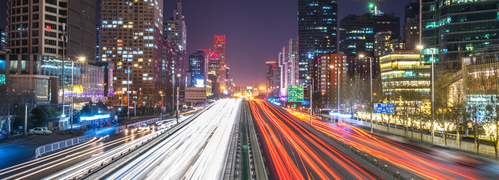
From Desiring God
Permission to slow down — perhaps that’s what you’re aching for again. Maybe you tasted it for a few weeks, or even months, when the pandemic hit, as event after event was cancelled. But now, with vaccinations in arms, and the collective rush to return to life as “normal” (as much as that’s possible), you’re feeling the need again for life to move slower than the modern world seems to allow.
You’re not alone, and the phenomenon may be understandable, at least in good measure.
Age of Accelerations
According to New York Times columnist Thomas Friedman, we are living in “the age of accelerations.” Our world has become increasingly fast-paced through the exponential development of technology and accompanying factors. Now “the pace of technology and scientific change,” he writes, “outstrips the speed with which human beings and societies can usually adapt” (Thank You for Being Late, 39). Friedman claims that “we are living through one of the greatest inflection points in history” (3) — perhaps unequaled in the last 500 years.
We have come to “a fundamental turning point in history” (4), and perhaps you’ve felt the effects, as I have. To-do lists seem to grow faster than we have time for. We hurry in the morning. Hurry on the road. Hurry at work. Hurry between meetings, and in meetings, and over meals. Hurry to get dinner ready. Hurry to eat. Hurry to get the kids cleaned up, and out the door, and get back home, and get to bed. Then, hurry to do more on evenings and weekends than we realistically have time for. Then hurry to bed ourselves. Get too little sleep. And start it all over the next day.
Even more important than what constant hurry is doing to our work lives, family lives, relationships, and emotional health, is what it’s doing to our souls. The late Dallas Willard (1935–2013) sounded the alarm toward the end of his life: “Hurry is the great enemy of spiritual life in our day.”
Find Your Balance First
The challenge of living in an increasingly fast-paced society, and finding measured ways to slow our lives down to a realistic human speed, will be addressed on many fronts. Whole books, like John Mark Comer’s Ruthless Elimination of Hurry, offer various ideas and strategies. But here I’d like to focus on just one, but one that may be as important, if not more so, than any other:
Begin the day at the pace of God’s word.
You’re not alone, and the phenomenon may be understandable, at least in good measure.
Age of Accelerations
According to New York Times columnist Thomas Friedman, we are living in “the age of accelerations.” Our world has become increasingly fast-paced through the exponential development of technology and accompanying factors. Now “the pace of technology and scientific change,” he writes, “outstrips the speed with which human beings and societies can usually adapt” (Thank You for Being Late, 39). Friedman claims that “we are living through one of the greatest inflection points in history” (3) — perhaps unequaled in the last 500 years.
We have come to “a fundamental turning point in history” (4), and perhaps you’ve felt the effects, as I have. To-do lists seem to grow faster than we have time for. We hurry in the morning. Hurry on the road. Hurry at work. Hurry between meetings, and in meetings, and over meals. Hurry to get dinner ready. Hurry to eat. Hurry to get the kids cleaned up, and out the door, and get back home, and get to bed. Then, hurry to do more on evenings and weekends than we realistically have time for. Then hurry to bed ourselves. Get too little sleep. And start it all over the next day.
Even more important than what constant hurry is doing to our work lives, family lives, relationships, and emotional health, is what it’s doing to our souls. The late Dallas Willard (1935–2013) sounded the alarm toward the end of his life: “Hurry is the great enemy of spiritual life in our day.”
Find Your Balance First
The challenge of living in an increasingly fast-paced society, and finding measured ways to slow our lives down to a realistic human speed, will be addressed on many fronts. Whole books, like John Mark Comer’s Ruthless Elimination of Hurry, offer various ideas and strategies. But here I’d like to focus on just one, but one that may be as important, if not more so, than any other:
Begin the day at the pace of God’s word.
